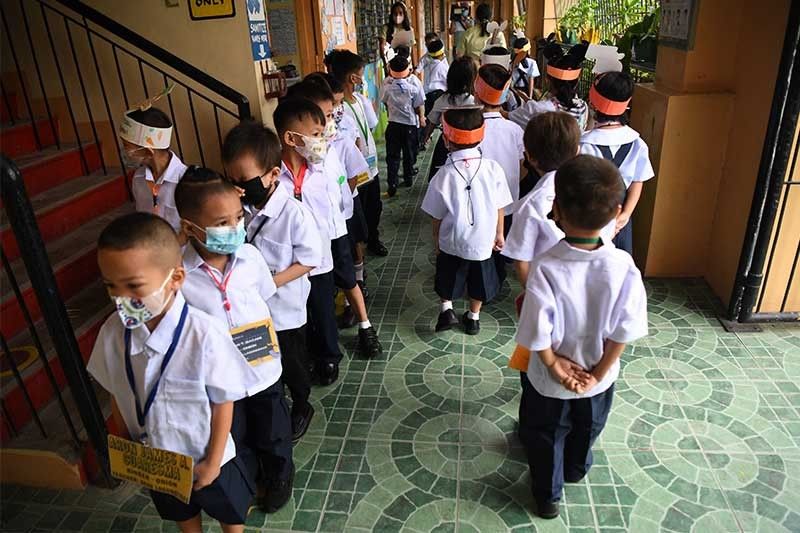DepEd urged to stop Catch Up Fridays after teachers flag drop in student attendance

MANILA, Philippines — Two teacher groups have urged the Department of Education to stop the implementation of Catch Up Fridays as more students have reportedly been skipping school on Fridays due to a lack of engagement with the program, especially in schools with limited reading materials.
In separate statements and interviews, the Alliance of Concerned Teachers (ACT) and the Teachers’ Dignity Coalition (TDC) criticized DepEd’s lack of provision of reading materials for teachers to carry out the weekly reading intervention program, leading to its uneven implementation in schools.
“After a month of implementing Catch-Up Fridays, it is the teachers who bear the brunt of the additional workload in preparation and implementation. Due to the lack or insufficiency of books or materials, teachers are forced to spend on photocopying reading materials,” ACT Chairperson Vladimer Quetua said.
“Absence of guidelines leaves room for interpretation, resulting in a variety of activities deemed as 'Ready Activities'. Reports also indicate an increase in student absenteeism and tardiness on Fridays, posing challenges for teachers in achieving the objectives of Catch-Up Friday,” Quetua added.
Similarly, TDC Chairperson Benjo Basas said that students’ waning interest in reading every Friday have made them skip school instead, including students who can read and do not see the importance of still participating in the program.
“They think, ‘Might as well just be absent.’ That’s the reports received by members of TDC,” Basas said in Filipino.
Launched by DepEd in January, Catch Up Fridays is a weekly learning intervention program that requires schools to dedicate half of the day to reading activities and the other half to values, health and peace education.
The reading intervention program targets both non-readers and students who can read through "differentiated instruction," a teaching strategy that aims to benefit a wide range of students by tailoring lessons to students' specific interests and needs. However, based on EDCOM 2's initial assessment of the program, teachers struggle to implement differentiated instruction in class due to lack of training.
DepEd last week flagged reports that some school personnel have resorted to selling books and workbooks and requiring parents and students to buy these. The department urged parents not to “patronize such transactions” as the weekly program should not require out-of-pocket expenses.
Basas said this only indicates that the responsibility of providing students with reading materials had been passed onto teachers and school personnel.
“This is the symptom, and not the illness. This happened perhaps out of the necessity and passion to carry on with a program that was not given the proper provision of materials,” he said.
Both groups said that the program should be stopped as it also takes away one day of regular classes, “defeating” its purpose of helping students catch up with their overall learning losses from the COVID-19 pandemic.
"The very purpose of this is defeated. The best solution is to stop it and to have a discussion between DepEd and stakeholders, teachers and school heads,” Basas added.
Quetua added that intervention programs should be “tailored to individual learners’ needs” and that “consultations” should have come before its implementation.
“For a fair and effective learning recovery program, the participation of teachers should be considered in crafting any learning intervention. It should not be limited to the issuance of directives by the DepEd Central Office,” Quetua said.
Latest World Bank data shows that nine out of 10 Filipino children aged 10 struggle to read simple text. Before the COVID-19 pandemic, the figures showed seven out of 10 struggled to read.
According to the 2022 Program for International Student Assessment results, only 24% of 15-year-old Filipino students were found to have basic reading proficiency.
- Latest
- Trending































